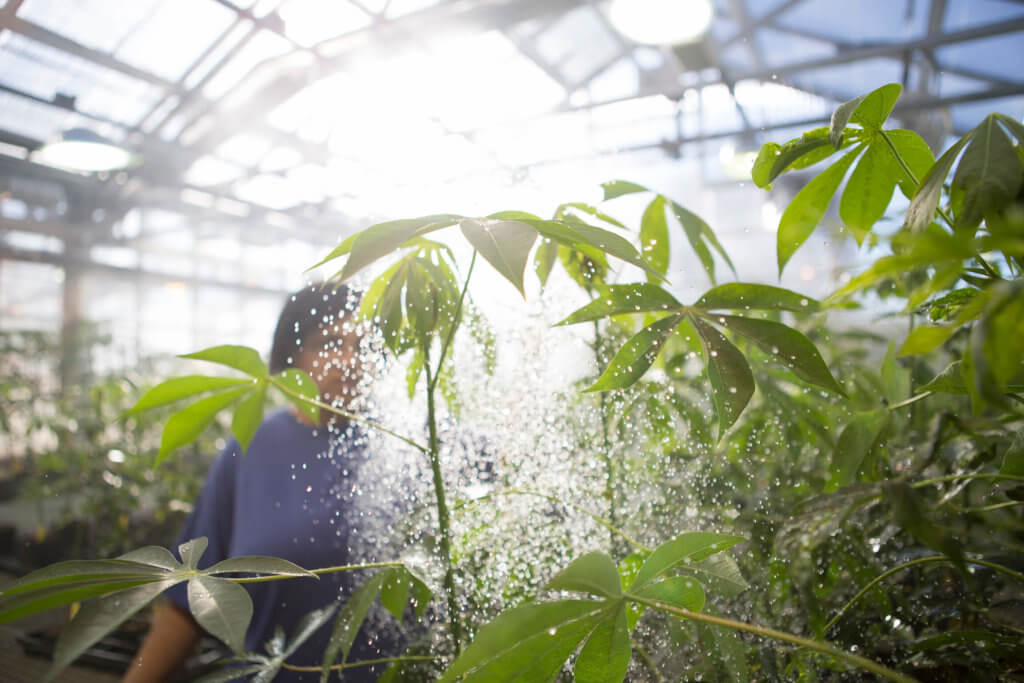What makes Missouri the Global Hub for Agtech?
- August 09, 2022
Missouri is the global leader in agtech.

The state has more than 95,000 farms – the second highest number in the U.S. The Missouri Department of Agriculture says agriculture, forestry, and related industries contributed nearly $94 billion to the local economy in 2021.
But staying ahead of the field demands a constant commitment to improvement. Challenges such as reducing inputs, improving yields, and meeting sustainability targets mean increasing digitization is essential for the global industry to survive and thrive in the future.
Technologies such as artificial intelligence (AI), robotics, the internet of things (IoT), edge computing, 5G, blockchain, and supercomputing can make agriculture more efficient, sustainable, and competitive. The digital transformation of agriculture will demand cooperation across the value chain, support farmers, and offer opportunities for innovative SMEs.
All aspects of agtech are already available in Missouri – research, big data, plant science, green chemistry, farm animal health, biofuels, agri finance, and much more. Missouri is known for helping cultivate companies focused on improving agriculture means Missouri offers fertile ground to grow your agtech business.
Why should agriculture adopt new technology?
The future of the world’s food, fuel, fiber, and more will be impacted by agriculture, the ability to adapt to changing climate realities, and the adoption of new technology. From precision agriculture to big data and sensors in remote locations, technology is advancing global farming around the world to ensure we can feed and clothe a growing population.
What benefits does Missouri offer agtech companies expanding into the U.S.?
Geographically and metaphorically, Missouri is at the heart of American agriculture and agtech.
Missouri’s statewide ecosystem supports the largest concentration of PhD plant scientists in the world and the Animal Health Corridor. Missouri has some of the best cropland in the U.S. and ranks in the top 10 for most crops and farm animals.
Missouri farms employ more than 450,000 people. Agriculture is such an important part of Missouri life that a 15-mile stretch of the Mississippi River has been named the ‘Ag Coast of America’ because of the volume of ag commodities that travel from and through the state.
Missouri’s central location makes it easy to dispatch finished food products throughout North America.

The right location for agtech
Companies in Missouri from Europe or elsewhere are joining an already thriving agtech industry.
Missouri is the global headquarters of the Climate Corporation, which uses data to enable farmers to make real-time decisions on the ground and maximize their returns on every hectare.
Missouri is the new North American headquarters for Wyld Networks, a satellite connected an IoT monitoring service used by farmers to understand their whole farm, even in areas with no internet or cellular service.
The state has the world’s first agtech innovation community, 39 North. The 600 acre district includes Bayer Crop Science’s Global Seeds & Traits HQ, the Donald Danforth Plant Science Center, KWS’s North American Research HQ, and many more companies and organizations. In Missouri, the future of agtech is happening now.
A global innovation partner
The challenges of producing more food sustainably and responsibly for a growing global population are bigger than any one company, organization, or country could solve alone. Continued innovation is critical, and Missouri is an agriculture state that has embraced innovation. Today, companies in Missouri, the UK, and elsewhere work together daily on new research and crops, jointly furthering agricultural innovation.
Agtech is growing in Missouri
Missouri is the gateway to the future of advanced farming. Achieving this will demand greater growth in innovation, partnerships, and investment. Missouri’s benefits for the agtech industry position the state as an international hub for growth. Today, agtech companies from around the world are expanding into the state, leveraging its ecosystem, talent, pro-business environment, and agricultural foundations.
It’s all growing in Missouri. Are you ready to be a part of it?
What Next?
- Talk to our CEO, Subash Alias, about business expansion opportunities at 314.932.3973 or via our contact form.
- Check out our available certified sites & buildings for your site selection needs.
- See how Missouri’s business climate ranks in comparison to other states in the U.S.
- Learn more about why Missouri is a top state for agtech business locations and investment.